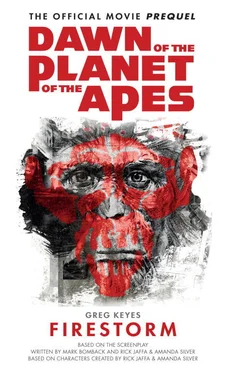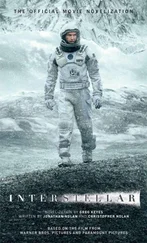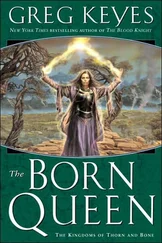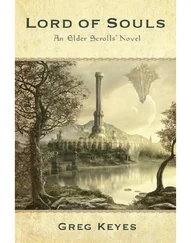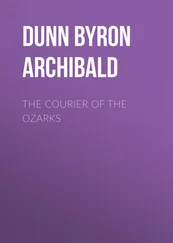That’s when Milo seems to remember something. He goes to the wall and pushes something. Suddenly there is a loud grinding sound.
Koba jumps at the sound and chitters as the sliver of light gets bigger and bigger until they are looking at outside. He gingerly approaches it. He feels something in him, then gets an idea. What if he and Milo just go into the outside, and keep going? What if there are no more cages, no more tricks, no more beatings or shocks or fire pushed in his eye?
He tries to explain to Milo, but Milo is scared. So they find a safe corner and wait. Soon the outside starts getting dark, and Koba gets a little worried, too. But then he becomes determined.
Next time it is light , he thinks, I will go outside and stay there, whatever Milo does.
So he and Milo go back in the house to sleep.
Koba wakes up with a lot people talking. They are everywhere in the house. Some of them are looking at Tommy. Most of them are looking at Milo and Koba.
“Easy there,” a man says, as Koba sits up.
“Crap, look at him,” someone else says. “Is animal control on the way?”
“They should be here any minute,” the first man says.
Koba can see outside.
Koba go outside , he signs.
“Watch it,” the second man says. “He’s doing something.”
Koba looks past the men. He points at outside.
The first man is now holding a thing like Tommy had pointed at him.
Koba go outside , he says again.
“You know,” one of the people says, “I think he might be trying to say something. You know, like those monkeys the scientists talk to?”
“This one looks like the chimp on that TV show,” Somebody else says, pointing at Milo. “He has that same mark on his face.”
“You can’t tell one of these things from another,” the second man says. “They’re all just dumb animals.”
“Well, I can sure tell these apart,” he says, pointing at Koba’s eye. “There’s no way I’d forget that.”
Koba knows then that the people won’t help him. He knows there is only one way he can go outside.
He bounds forward, over the couch where Tommy will never wake up, through the open door. He reaches the grass, feels it beneath his feet as he runs with every ounce of strength in his body.
They run after him. Koba sees a tree and scrambles up it. It is hard—all those days in the cage cause his muscles to cramp, but it still feels good as he climbs up toward the sky. This time he thinks he might touch it, because there is no cage, and he can keep going up, up, higher until no one can even see him.
Something hits him in the side, hard, and it hurts so much he almost loses his hold. He puts his hand there and finds something sticking out of it.
He looks down, and sees lots of people looking at him. Some of them are pointing. He sees Milo, being led on a leash toward a truck.
Then he turns and begins climbing again, but it’s more difficult now, and everything is going strange. His hands and feet seem very distant, not connected to him anymore. His heartbeat is like a little fly buzzing in his chest. The sky above seems to be moving around the tree.
The last thing Koba is aware of is falling. He feels as if he is in the sky.
David didn’t turn, as the voice had directed. He ran like hell. It wasn’t a strategy or the result of a conscious decision. It was just what he did.
This time he heard the high-pitched whine of a silenced gun firing sas he sprinted back toward Church Street, with nothing but open ground around him. Then he heard it again. He didn’t hear the third shot because he was too busy being hit by it. White heat blazed through his back and the ribs on his right side, and his lungs suddenly felt hot, as if he’d been running all day.
He stumbled, trying to keep his feet under him.
The only part of his brain still working was the part that wanted to live, which meant he had to keep running, no matter what.
Except he couldn’t.
“Hey!” he heard someone shout, and realized it was the old man with the dog. He was holding a pistol.
Shit , David thought.
He heard the thwimp of the silenced weapon, then the explosion of the decidedly unquiet weapon in the old man’s hand—once, twice, three times. David lay there, feeling the blood leaking through his ribs, wondering why he wasn’t dead yet.
He finally lifted his head and saw the soles of the old man’s feet, close by and pointed at him. When he turned around, he saw a younger man with dark glasses, lying in a similar position.
David sat up cautiously. He saw a few people running away—everyone else had already gone.
He pushed himself unsteadily to his feet. The old man was clearly dead, but he checked for a pulse anyway. The dog, a Pomeranian, whined and licked at his deceased master’s face. The other guy—the one who had tried to kill him—had a bloody hole where his nose once had been, and another in the middle of his chest.
David stumbled back to his knees and began to vomit. When he was finally done with that, he shakily took out his cell phone and dialed 911.
The phone told him that the network was overloaded.
He looked around. There wasn’t another soul to be seen.
Swearing at the pain in his side, trying to get his thoughts in order, he began searching through the murderer’s jacket. He took his wallet and his phone, but didn’t find anything else of significance.
Then he left the scene, limping, holding his side. He stopped and looked at the old man again, then at the body of Linda’s sister.
God, what have I done? he thought.
He couldn’t think of where he should go. All of the hospitals were slammed, and if he went to one, he would probably catch the plague anyway. He had a first-aid kit at home, but going there seemed like a bad idea. Had they followed her or him to the meeting? Was his phone tapped? What if another guy with a gun was waiting for him at his apartment?
How did he have a hole in him? How could someone shoot three people in a city park? This happened to other people, not to him. Other people in other places.
But now it was happening to everyone, wasn’t it? He felt a sudden plummet in his gut as he realized how fragile civilization really was. All of this steel and stone and glass around him seemed strong, durable, and dependable. It was built to withstand earthquakes.
But a civilization wasn’t made up of its buildings. The pyramids had outlasted the pharaohs and the Colosseum remained long after the Roman Empire. Civilization, in the end, was about rules and norms that people agreed to follow. And that was weaker than tissue. He remembered a satirical article he’d once read, about people who had resorted to cannibalism after being stuck in an elevator for fifteen minutes. He’d thought it was hilarious at the time.
Now it didn’t seem funny at all.
He needed an emergency room, but he knew they were all slammed.
Talia, he realized, then. She didn’t live far from here.
* * *
He buzzed five times before she answered.
“Who the hell is it?” the intercom crackled.
“David,” he said. “Talia, it’s David Flynn.”
He heard the intercom click off, then back on.
“David, I just pulled a seventy-hour shift,” she said. “I’m not in the mood—”
“I’ve been shot, Talia,” he sobbed. “I don’t know where else to go.”
“Shit.” A pause. Then the door clicked. “Get in,” she said. “Wait for me in the foyer.”
She was down a few minutes later, wearing flannel pajamas and slippers. She had a tote bag with her.
“David?” she said, kneeling beside him.
“Thanks, Talia,” he murmured as she examined his wound.
Читать дальше
